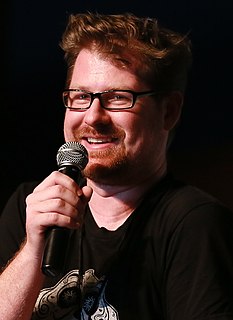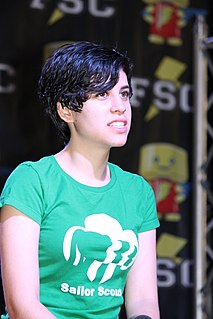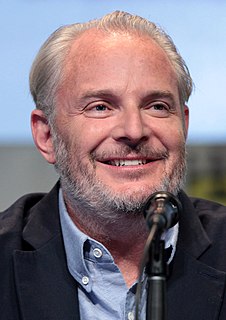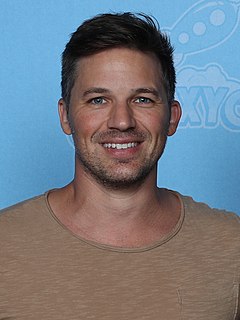A Quote by Justin Roiland
There are very few VR games with really strong characters and voice acting.
Quote Topics
Related Quotes
I'm a huge gamer. I'm very excited, and the idea of the Rift was as a headset that was designed around the specific uses of VR gaming. But I'm excited about a lot of stuff that's outside of it, because I was a VR enthusiast. I want VR to be the thing that we all live in, that we all use for everything, not just games.
There are a few pretty fundamental differences. In voice acting, if you are doing game recording, for the most part you are going to be by yourself in a studio. With game voice acting you are constructing everything for yourself pretty much. You're thinking about what the other characters could be doing, trying to imagine the scene, you're constructing the entire environment for yourself.
I had a hole in my voice. It's an area in the voice where it's air. It's just - there's no - it's just very airy. And my classical teachers were just so frustrated with me because I would have these deep, low notes that were really strong, and the higher register was strong, but right in that middle area, it was really hard. It was like a passage. And many singers go through this and work it out. But I realized in jazz, I could just take advantage of that and take advantage of having a voice that was very different in different areas.






























